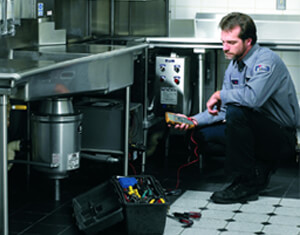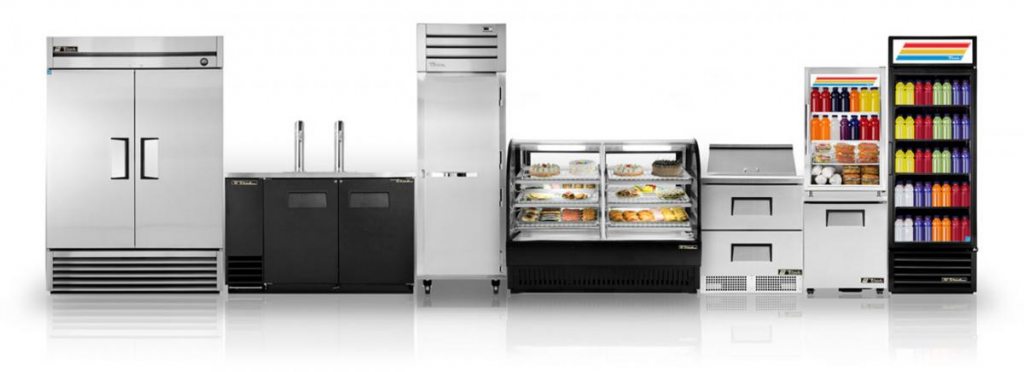Your LG Troubles Solved: Dependable Refrigeration & Appliance Repair Service LG Appliance Repair’s Pro Fixes
Your LG Troubles Solved: Dependable Refrigeration & Appliance Repair Service LG Appliance Repair’s Pro Fixes
Blog Article
Necessary Tips for Effective Ref Repair Work to Prolong Device Lifespan
When it comes to your fridge, proper repair work and maintenance are crucial for long life. Recognizing usual issues and knowing when to act can make all the difference.
Understanding Common Refrigerator Problems
Fridges are important in keeping your food fresh, yet they can encounter a variety of common troubles that disrupt their efficiency. One frequent problem is insufficient air conditioning. If you discover food ruining quicker than usual, check the thermostat setups or think about if the door seals are harmed. An additional typical problem is extreme sound, which might suggest a malfunctioning compressor or a falling short follower. You may also experience water pooling inside or below the refrigerator; this commonly results from a blocked defrost drainpipe or a damaged water line. Additionally, if your fridge's light isn't functioning, it could be a basic light bulb concern or a trouble with the door switch. Ice build-up in the freezer can impede airflow and cooling down effectiveness. Acknowledging these issues early can conserve you money and time out of commission, guaranteeing your refrigerator runs smoothly and successfully.
Routine Upkeep Practices
To keep your appliances running efficiently, you need to remain on top of normal upkeep practices. Tidy the condenser coils, check the door seals, and keep track of the temperature level settings to ensure peak efficiency. These easy tasks can save you money and time on repairs down the line.
Tidy Condenser Coils Regularly
Cleaning your condenser coils routinely can significantly enhance your home appliance's efficiency. Dust and dust develop up on these coils over time, creating your device to work tougher and consume even more energy. To keep them clean, disconnect your home appliance and carefully eliminate any kind of protective covers.
Inspect Door Seals
Three straightforward steps can help you guarantee your home appliance's door seals are in good problem. 2nd, tidy the seals utilizing cozy, soapy water to remove any type of particles or gunk. By complying with these steps, you'll maintain your device's efficiency and durability, saving you cash on energy expenses and repairs in the long run.
Monitor Temperature Settings
Routinely monitoring your device's temperature setups is important for finest efficiency and performance. Whether you're taking care of a fridge, fridge freezer, or oven, maintaining an eye on these setups can avoid numerous problems. For fridges, go for temperatures in between 35 ° F and 38 ° F; for freezers, stay 0 ° F. If the temperature levels are expensive or reduced, your device might work harder, squandering power and shortening its life expectancy. Utilize a thermometer to check these settings frequently, particularly after major changes, like moving your device or readjusting the thermostat. If you observe fluctuations, change the settings as necessary and seek advice from the user handbook for advice. By remaining positive concerning temperature level monitoring, you'll ensure your appliances run efficiently and last longer.
Repairing Air Conditioning Concerns
When your fridge isn't cooling down appropriately, it can bring about spoiled food and threw away cash, so dealing with the problem without delay is crucial. Begin by examining the temperature level settings to confirm they're at the advised levels, usually around 37 ° F for the refrigerator and 0 ° F for the fridge freezer. If the settings are proper, check the door seals for any kind of spaces or damage; a malfunctioning seal can enable warm air to enter.
Check the condenser coils, usually located at the back or base of the unit. Clean them with a vacuum or brush to optimize efficiency. If problems persist, it could be time to call a specialist.
Dealing With Water Leakage and Ice Accumulation
If you're handling water leakage or ice accumulation in your home appliance, it's vital to determine the source of the trouble. By determining where the water is coming from, you can prevent additional issues and stay clear of expensive repair services. Let's discover some reliable techniques to take on these common issues.
Identify Leakage Resources
Just how can you properly determine the sources of water leakage and ice accumulation in your appliances? Begin by examining the seals and gaskets on your fridge and freezer doors. A used or damaged seal can permit cozy air to enter, triggering condensation and ice. Next, inspect the drainpipe frying pan and water drainage system for blockages or clogs; a backed-up drain can bring about water merging. Look for any type of loose links in the water supply line, which can produce leaks. Likewise, examine the defrost drainpipe for ice accumulation, which can interrupt correct drain. By methodically checking these locations, you'll identify the resource of the problem, allowing you to take the required actions to fix it and expand your appliance's life expectancy.
Prevent Ice Formation
To stop ice formation in your devices, begin by verifying the temperature level settings are proper. If your refrigerator or fridge freezer is too chilly, it can bring about excessive ice build-up. Check the door seals regularly; damaged seals can let warm air in, causing condensation and ice formation.
Maintain the home appliance well-ventilated and prevent overcrowding, as this can block air movement - Who Repairs Dryers in Oro Valley? Dependable Refrigeration & Appliance Repair Service. Consistently thaw your freezer if it doesn't have an automatic defrost function.
If you see water leak, recognize and take care of any kind of blocked drain openings, as they can add to ice build-up. Clean the coils and verify they're functioning correctly to keep peak efficiency. Taking these steps will help prolong your device's lifespan and effectiveness.
Resolving Noisy Fridge Seems
While it may seem alarming, a loud fridge frequently signals small concerns as opposed to significant malfunctions. Determine the resource of the sound. Common offenders consist of the compressor, fans, and water lines. If you click here for more info listen to a buzzing noise, it may be the compressor striving; this can just be a normal operation noise.
Next, inspect for loosened products inside. In some cases, containers or shelves can rattle, developing undesirable sound. Tighten up or rearrange them to remove the sounds.
If you see a clicking noise, it may be the defrost timer. This is usually safe yet can show it needs assessment.
Ultimately, validate your fridge is level. An out of balance device can generate resonances and noise. Make use of a degree to inspect, and adjust the feet if needed. Attending to these problems immediately can aid maintain your fridge's efficiency and lengthen its life-span.
When to Change Parts vs. Complete Substitute

Nonetheless, if your device is older and experiencing numerous issues, a complete substitute could be a lot more cost-effective. Consider the pop over to this web-site expense of fixings versus the appliance's value. If fixings exceed 50% of a new device's price, it's normally better to purchase a replacement. Furthermore, if you notice ongoing issues that maintain recurring, it's a sign that your device has reached the end of its life. Evaluate these aspects thoroughly to make the ideal choice for your needs and spending plan.
Knowing When to Call an Expert
How can you tell when it's time to call in a professional for home appliance repair work? If your device quits functioning entirely or frequently trips browse around here circuit breakers, it's one more red flag.
You must likewise consider your own comfort level with fixings. If you're unsure concerning diagnosing the problem or lack the right tools, it's best to get to out for aid. Bear in mind, attempting complicated fixings can cause even more damages or perhaps safety and security risks.

Frequently Asked Concerns
How Commonly Should I Clean the Fridge Coils?
You ought to clean your fridge coils every six months. This assists preserve effectiveness and prevents getting too hot. If you discover too much dust or pet hair, tidy them extra frequently to assure your fridge runs efficiently.

Can I Make Use Of Vinegar for Cleaning My Refrigerator?
Yes, you can utilize vinegar to cleanse your refrigerator! It's a superb natural cleaner that eliminates smells and spots. Refrigerator repair experts Dependable Refrigeration & Appliance Repair. Simply blend it with water, use it to surface areas, and clean down for a fresh, tidy refrigerator
What Temperature level Should My Fridge Be Establish To?
You should set your refrigerator to 37 ° F(3 ° C) for suitable food preservation. This temperature maintains your food fresh while protecting against spoilage, ensuring your groceries last longer and minimizing waste. It's a simple adjustment you can make!
Does a Fridge Need to Be Leveled?
Yes, your refrigerator requires to be leveled. If it's irregular, it can influence cooling effectiveness and trigger excess noise. Check the progressing legs and adjust them to assure correct equilibrium for suitable performance.
How Can I Minimize Fridge Energy Consumption?
To lower your fridge's energy consumption, keep it clean and well-ventilated, examine door seals for leaks, set the temperature level between 35-38 ° F, and prevent straining it. These actions can substantially lower your power expenses.
Report this page